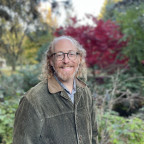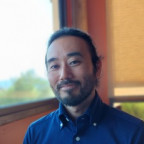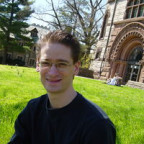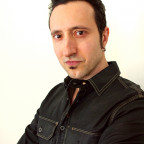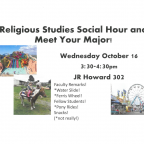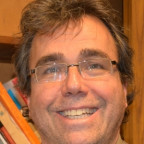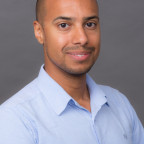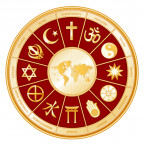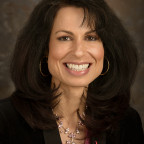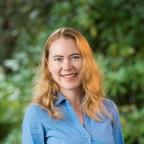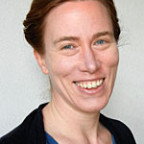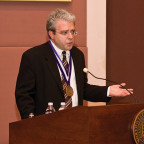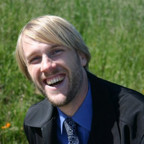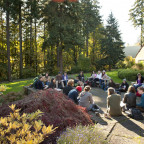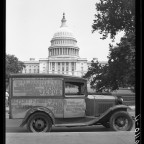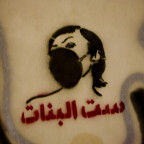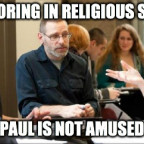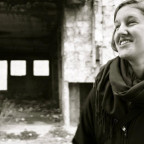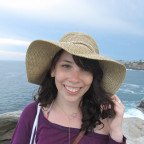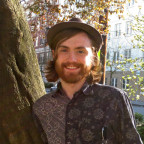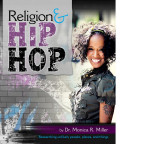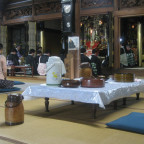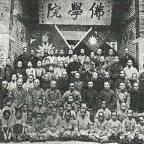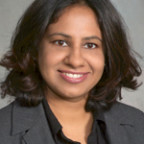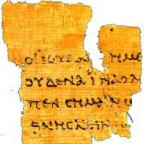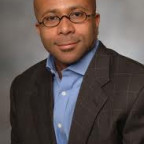“Spiritual Therapies, Energy Medicine, and the Recuperative Middle”, Justin Stein (Kwantlen Polytechnic University, British Columbia)
In modern societies, attention to human beings’ complex needs has been largely divided into areas of specialization, with our bodies assigned to “medicine” (generally interpreted to mean biomedicine), our minds and emotions in the realm of “psychology,” and our souls entrusted to “religion” (or more recently, “spirituality”). Of course, lived practices often frustrate such differentiation, and recent developments like holistic medicine and integrative medicine try to attend to the health of individuals as whole beings. Holistic medicine tends to make space for the overlapping fields of “spiritual therapies” and “energy medicine,” whose promoters tend to posit the existence of a benevolent transpersonal force that governs human health. Practitioners frame their practices as a means to return to an ancient holism that predates the modern differentiation of human health into separate biochemical, psychosocial, and spiritual realms.
In this talk I will focus on the example of Reiki, often considered a paradigmatic form of spiritual healing and/or energy medicine, and consider how its practitioners and promoters have ambivalently located Reiki vis-à-vis the categories of religion and medicine. Drawing on examples from Reiki history as well as current efforts by practitioners to introduce Reiki to hospitals while also resisting state regulation, I will consider the challenges to secularity (and secularism) posed by appeals to a “recuperative middle” that predates the divide between religion and medicine.
Sacrificing Oneself to Save the Village - Takashi Miura (University of Arizona)
Thousands of peasant protests took place in early modern Japan (1603–1868), and many of them featured protest leaders executed by the feudal government for resorting to illegal protest tactics, such as bypassing legal channels of appeal and engaging in disruptive and at times destructive behaviors. Following the executions, surviving community members deified these “protest martyrs” for having made the ultimate sacrifice in exchange for bringing economic relief to their fellow villagers, often by forcing the government to rescind unpopular taxes and other fiscal measures. Shrines dedicated to protest martyrs mostly remained localized institutions, known only to their immediate rural communities. I argue, however, that the emergence of these “martyr shrines” was a widespread phenomenon in early modern Japan, a new religious current largely ignored in traditional historiographies of Japanese religions. In this presentation, I will examine case studies from three different regions of Japan (the Imabari, Karatsu, and Tsu domains) and highlight the ways in which religion, protest, and rural livelihood intersected in early modern Japan.
Soka Gakkai From the Ground Up: A Look Within Japan’s Most Politically Influential Religion
A presentation by Levi McLaughlin of North Carolina State University.
“Dark Gods in the Age of Light” by Jason Ānanda Josephson Storm
Join us for an event featuring Jason Ānanda Josephson Storm of Williams College.
Holi Festival Celebration
Santa Muerte: Insights on Deeming “Bad Religion” by Teresa Rios Martinez
FESTIVAL OF SCHOLARS - “Hard to Digest” Panel
Santa Muerte is a folk saint in Mexico with origins in the old religion of the Aztecs that has an increasingly growing following not only in Latin America and the United States among Latinx populations, but also in the broader occult milieu. She is known as the patron saint of criminals or narcos, as a large portion of her devotees are involved in gangs, drug trafficking, and prostitution, however that is not the full demographics of her following. This paper examines why the cult of Santa Muerte is considered a “bad” and “dangerous” religion. Jason Josephson’s work on heretical anthropology, Ann Tave’s “specialness” theory, cult theory, and new religious movement theory is employed to gain deeper insights on the factors surrounding the labels attached to Santa Muerte and her followers. The Catholic Church claims that she is satanic and the Mexican government actively targets her followers and associates their crimes to her. To her followers she is a religious figure that helps them in a time of need, especially to those who are constantly surrounded by violence and death. By looking at Santa Muerte from these three different perspectives we can see that she is ultimately labeled a bad religion because of the challenge she poses the steadily declining Catholic population in Mexico.
“Spirit/Medium/Media: A Critical Examination of the Relationship Between Animism, Animators, and Anime” by Jolyon Thomas (University of Pennsylvania)
Religious Studies at Lewis & Clark
A social hour with food, drink, and good conversation with faculty members, majors, minors, and other interested students about what the discipline of religious studies has to offer to the liberal arts; as well as a preview of courses to be offered in Spring 2018!
Senior Reception with Family and Faculty
“’By the Sweetness of the Tongue’: Stories, Lives, and Hindu Holy Women in India” by Antoinette E. DeNapoli (University of Wyoming)
“Queering Vedic Culture: Paths to Celebrating LGBTQ Relationships in India’s Devout Hindu Communities” by Claire Robison (Lewis & Clark College)
Festival of Scholars
It is our pleasure to invite you to the Festival of Scholars, an opportunity for student-scholars and artists to present their research and art, while also learning from one another.
“Oh, Hell! The Horrible and the Hilarious in Secular Japanese Picturebooks” by Heather Blair (Indiana University)
Meet Your Major
Religion/Modernity: Living on the Slash by Robert Orsi (Northwestern University)
Discussion with Ian Blair and Rob Kugler
“A Religion of Convenience: The Universal Life Church, Contemporary Weddings, and the Secular Sacred” - Dusty Hoesly CAS ’02
Major national news outlets have observed that weddings in the United States, especially for young educated people, are increasingly performed by ministers who are friends or relatives of the couple and who become ordained online just for that purpose. The primary organization licensing these ministers, and thus authorizing these weddings as legally valid, is the Universal Life Church (ULC), which has ordained over 20 million people since 1962. To date, there has been no focused study of the ULC or weddings conducted under its auspices. According to my initial research findings, both ULC ministers and the couples who use them self-describe as non-religious, usually as agnostic, atheist, apathetic, secular, or spiritual. Similarly, they describe their weddings in non-religious terms, emphasizing the personalization of the ceremony to match their particular beliefs and tastes as well as the conscious exclusion of most religious language. These secular or spiritual wedding ceremonies reveal non-religious couples’ desires for an alternative apart from bureaucratic civil ceremonies or traditional religious rites. Using original archival, survey, interview, and participant observation data, mostly based in California and the Pacific Northwest, this paper explores why “secular” people employ ULC-ordained ministers for their weddings, and how ULC ministers and couples married by them label and valuate their “non-religious,” personalized wedding ceremonies. My examination of ULC weddings reveals not only the diversity of non-theistic self-identification and lifecycle ritualization, but also how constructs such as religious and secular can be co-constitutive rather than oppositional.
Festival of Scholars
Panel of Religious Studies Alums
Dr. Martin Luther King, Jr. Celebration
Standing at Armageddon: The Rise of American Fundamentalism in a Global Age by Matthew A. Sutton (WSU)
Sutton’s talk, based on a forthcoming book, will focus on the role that apocalypticism played in the origins and evolution of American Christian fundamentalism from the late nineteenth century to the rise of the modern Religious Right. Fundamentalists believed that the world was going to end—imminently, violently, tragically. This conviction shaped who they were, how they acted, and how they related to those inside and outside of the faith. It conditioned their analysis of politics and of the economy. It impacted how they voted and for whom. It determined their perspectives on social reform, moral crusades, and progressive change. It influenced the curriculum they brought into their schools and their views of American higher education. It defined their evaluation of alternative expressions of Christianity as well as competing religions. It framed their understanding of natural disasters, geo-political changes, and war. In sum, fundamentalist and later evangelicals’ anticipation of the soon-coming apocalypse made them who they were.
Gender and Politics in the New Middle East
Friday, November 1st,4:00 – 5:30 PM in JRH 202
Religious Studies: Meet Your Major
Already declared? Learn from faculty and upperclassmen about what’s coming up - in the next few years and afterward.
We will be holding an informal meet and greet on to discuss all of these!
Refreshments will be served.
To RSVP, please click here:
Meet Your Major: Religious Studies
Senior Thesis Presentation - Kayla Aronson
Composed during the late tenth or early eleventh century, the Apocalypse of Anastasia is a unique Byzantine apocalyptic text. Representing a non-elite voice in Byzantine society, the text targets individuals, aiming at nothing less than complete moral reform in order to achieve salvation. My thesis aims to illustrate how, and especially why the author of Anastasia used apocalyptic to communicate this message of moral reform. I use a theory of apocalyptic developed by Professor Rob Kugler during a seminar on apocalyptic imagination taught at Lewis & Clark College in the fall of 2012. Beginning with the idea that apocalyptic is one strategy of responding to a real or perceived threat of injustice, the theory helps explain the behavior of groups in crisis. Using this framework, I argue that the author of Anastasia used apocalyptic to create its own societial epistemology through the construction of a moral map for hearers to either accept or reject, knowing full well the cosmic consequences of either decision. Anastasia thus provides an example of an apocalyptic community that promotes a homogeneous shatter zone.
Senior Thesis Presentation - Drayton Cousins
The 1979 Iranian Revolution was a watershed moment, one that exposed the tensions between the Western, modern world and the historic tradition of Islam in a global society. The first part of this paper is a historical exploration of the responses to the Iranian Revolution through a case study of Mohsen Kadivar, a liberal and reformist Iranian Shia jurist. Kadivar articulates the many contradictions between the historical/traditional approach to Islam (as seen currently in the Islamic Republic of Iran) and modern human rights before proposing a solution in the form of “new-thinker” or “goal-oriented” Islam. The second part of this paper is a comparative and theoretical analysis of Kadivar and his proposal. I compare Kadivar’s theories to those of Reform Judaism for a historical perspective and employ Max Weber’s ideas on rationalization and secularization for a theoretical analysis.
Senior Thesis Presentation- Lonnie Kleinman
In this thesis, I tell the story of American Jewish youth group trips that visit Holocaust sites in Poland, and then Israel. The emergence of such trips in the late 1980s marks a turning point in the way American youth learn about the Holocaust. To ground my analysis, I focus specifically on United Synagogue Youth’s summer trip, called Israel Pilgrimage/Poland Seminar. I argue that affiliated youth feel a responsibility to visit these sites that are made sacred by memory. The trip operates within the purview of Conservative Judaism and emphasis on religious practice throughout the summer marks it as a distinctly religious phenomenon. I examine the use of ritual commemoration at specific sites, which creates distinct meaning and marks ritual space as sacred. I investigate how ritual contributes to the characterization of these trips as modern pilgrimages that take place in moments of liminality. Finally, I examine the potency of lived interactions in these sacred spaces, which represents a commemorative narrative that situates youth within a greater American Jewish mega-narrative. This experience contributes to the collective memory of the group, leaving a lasting impact on the identity of individual participants. The various means of interacting with space are highly controlled and representative of Conservative Judaism’s ideology that links the destruction of the Holocaust and Poland to redemption of the Jewish people and Israel. Ultimately, These trips represent a successful method of identity construction for American Jewish youth.
Senior Thesis Presentation- Casey Emmerling
This essay analyzes Eckankar, an international New Age religion, as it fits into the religious landscape of the Pacific Northwest region of the United States. Sources cited include original interviews with members of the Eckist community in Portland, Oregon, as well official Eckist literature. The essay is centered around three related arguments: First, that Eckankar’s broad and ardent emphasis on individualism, including a personal experience of divinity, libertarianism, and a highly elastic form of religiosity, runs parallel with general trends in the Pacific Northwest. Second, that “nature religion,” another Northwestern theme, occupies a complex and somewhat paradoxical place within Ecknkar, as it does within other New Age movements. Third, that theories of postmodern religion and rational choice are useful hermeneutic tools for understanding Eckankar and Northwestern religiosity more generally, while secularization theory is less instructive.
“The Interrupters” Film Screening
Faculty Bookwarming
Coffee and cookies will be served.
This event is open to the public.
A Family of Clerics: The Making of a Female Buddhist Professional in Contemporary Japan by Jessica Starling
Since the governmental reforms of the Meiji period (1868-1912), Buddhist priests in Japan have been permitted to openly marry, and parish temples have been passed down from father to son. While much has been made of the “corruption” and “laicization” of the Japanese Buddhist clergy, surprisingly little attention has been paid to the essential role that priests’ wives often play in temple operations and in the propagation of Buddhism at the local level. This presentation draws on two and a half years of fieldwork among temple wives in the Jōdo Shinshū, or True Pure Land School of Buddhism, to bring this untold story to light. Using detailed accounts of two temple wives as a window into the dynamics of Japanese Buddhism “on the ground,” I will show that regardless of their official ordination status, the wives, sons and daughters of temple priests are considered de facto religious professionals, their lives intimately tied to the operation of the temple.
“To Revitalize Buddhism and Save the Nation: Buddhist Education in Republican China” L. Rongdao Lai
McGill University
Asian Religious and Liberal Arts by Leena Taneja
Apocalyptic Film Series
Showings will be in Olin 301
Apocalyptic Film Series
Further films are:
11/27, 6:45, Zombieland
Showings will be in Olin 301
Papyri and Religious Imagination in Ancient Egypt By Rob Kugler (Lewis & Clark College)
Prof. Rob Kugler, Religious Studies and Classics, offers a glimpse into that larger world with the year’s first Religious Studies Department colloquium, to be held on November 7, 2012, at 3:30 pm in JRHH 124.
Apocalyptic Film Series
Further films are:
11/13, 6:45, Take Shelter
11/27, 6:45, Zombieland
Showings will be in Olin 301.
Apocalyptic Film Series
Further films are:
10/23, 6:45, 12 Monkeys
11/13, 6:45, Take Shelter
11/27, 6:45, Zombieland
Showings will be in Olin 301.
Kaśmir to Prussia, Round Trip: A Comparison of Monistic Śaivism and Hegel by Sarah Ann Lownstein, Meredith Margaret Nelson, and JM Friztman (Lewis & Clark College)
comparisons to contemporary science. We show that Kaśmiri Śaivism can
be transposed into Fichte’s philosophy and so set on a trajectory
towards Hegel. While Kaśmiri Śaivism reaches Prussia, the resources
Departmental Senior Reception
For more information, please Claire Kodachi at ckodachi@lclark.edu or (503) 768-7450.
Senior Thesis Presentations
Natalie Saing
Georgia Cary
Nathan Tucker
Hannah McCain
Lizzy Leider
Helen Vernier
Khnik Haefner
Each will present for about 20 minutes, followed by 10 minutes for questions and comments from the audience.
Opportunity to Discuss Life with a Religious Studies Degree!
Come join us in the department lounge for light refreshments and conversation. Bring your interested and interesting friends!
Living Humanism: Material Culture and the Remaking of Religion
This one day symposium brings scholars together, whose scholarship, in divergent ways, gives thought to the shifting context, understanding, classification, and modalities of how material culture (broadly understood), reshapes how we think about the category of religion, both theoretically and methodologically. The shape shifty landscape of contemporary culture offers a robust terrain to interrogate and rethink how we give thought to categories such as religion, as expressed in the multiplicities of material cultural products.
This symposium is dedicated to the theme “Living Humanism” to consider the complex ways in which religion and religious rhetorical housing often provides a space to negotiate human interests, means, and ends. Here, we consider how material culture, as both product and context, forces a rethinking of how religion is remade, often providing a cosmology of Humanism as both practice and posture in seemingly un/conscious ways.
3:30 - 5:00 Panel Discussions:
Patricia O’Connell Killen, Gonzaga
University
Cassie Trentaz, Warner Pacific
College
Susanna Morrill, Lewis & Clark
College
Diabolus Rex, Chaos Imperium
Monica Miller, Lewis & Clark
College
7:30pm Dr. Anthony B. Pinn, Keynote Speaker
What Are We to Each Other?
Thoughts of Ethics in the Age of “None”
Tenth Anniversary Commemoration of 9/11
Janet Bixby, associate professor of education and associate dean of the graduate school, will moderate the panel of Lewis & Clark speakers, who will focus on the following subjects:
Barry Glassner, president of Lewis & Clark: “9/11 and The Culture of Fear”
Paul Powers, associate professor of religious studies: “Americans, Muslims, and Modernity after 9/11”
Heather Smith, assistant professor of international affairs: “9/11 as a Test of Commitments to Human Rights”
Tung Yin, professor of law: “The Legal Architecture of Counterterrorism since 9/11”
“And the Word Became Flesh in Hip-Hop Culture” by Monica Miller, Visiting Post-Doc Candidate in Religious Studies
Monica R. Miller
(Ph.D. 2010, Chicago Theological Seminary)
She will teach a class session on the topic:
“And the Word Became Flesh in Hip-Hop Culture”
Dr. Miller is currently a Postdoctoral Fellow at the Center for Africana Studies, School of Social Policy and Practice, University of Pennsylvania; and Senior Research Fellow, The Institute for Humanist Studies, and Adjunct Assistant Professor, Columbia University (IRAAS).
Meet Your Major - Religious Studies Dept.
– Opportunities outside the classroom–internships, research opportunities
– What can you do with a Religious Studies major? What are some of your majors doing? So please stop by our offices and meet some of our Professors and majors. Pizza will be served.
Click Here to RSVP
